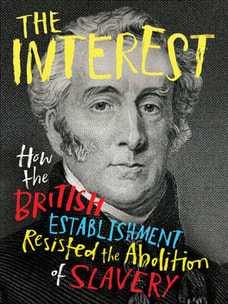The Interest: How the British Establishment Resisted the Abolition of Slavery is a new book by Michael Taylor. After the abolition of the slave trade in 1807, 800,000 enslaved people continued to work in the British colonies producing sugar and other commodities for the home market. Slavery remained central to Britain’s economic and strategic interests, and resistance to further reform meant a 26 year delay to the abolition of slavery in the colonies. This was led by “The West India Interest”, a pro-slavery elite involving wealthy planters, hundreds of MPs, civil servants, financiers, landowners, clergymen, judges and military chiefs, including publisher John Murray, The Spectator magazine, William Gladstone, the Duke of Wellington, Robert Peel and George Canning. Taylor explains that racism went hand-in-hand with the business, because people needed a way to rationalise slavery to themselves. They were helped by clergy who associated white and lighter skins with Christian concepts of “goodness” and purity and black skin with darkness and evil.
This review says: “Taylor’s magnificent book opens a window onto a most shameful commerce.” Another reviewercomments: “In an era when black history is at last being given its rightful due, Taylor’s potent book shows why slavery took root as an essential part of British national life and why to remember it otherwise is ‘misleading and self-serving’”.
Read more here.

